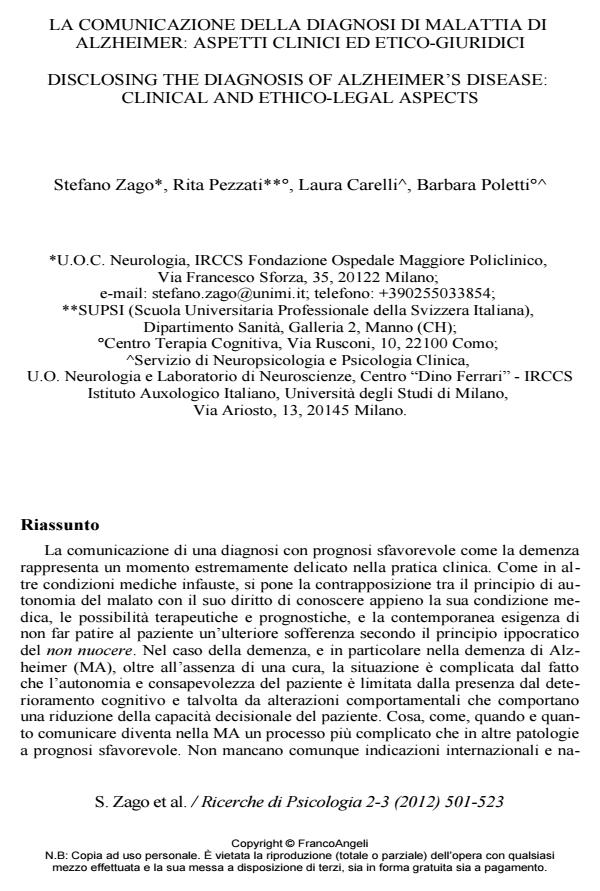Disclosing the diagnosis of alzheimer’s disease: clinical and ethico-legal aspects
Journal title RICERCHE DI PSICOLOGIA
Author/s Stefano Zago, Rita Pezzati, Laura Carelli, Barbara Poletti
Publishing Year 2013 Issue 2012/2-3
Language Italian Pages 23 P. 501-523 File size 284 KB
DOI 10.3280/RIP2012-002023
DOI is like a bar code for intellectual property: to have more infomation
click here
Below, you can see the article first page
If you want to buy this article in PDF format, you can do it, following the instructions to buy download credits

FrancoAngeli is member of Publishers International Linking Association, Inc (PILA), a not-for-profit association which run the CrossRef service enabling links to and from online scholarly content.
The disclosure of an unfavourable diagnosis, such as dementia, represents an extremely delicate moment in clinical practice. The principle of the patient’s right to know the medical facts in full and likely therapy and prognosis are juxtaposed with the coexisting need to avoid creating further suffering to the patient. In dementia, and in particular in Alzheimer’s disease, as well as care, the situation is complicated by the fact that the patient’s independence and awareness is limited due to cognitive and behavioural impairment, which determine a reduction in the ability of the patient to make decisions. What, how, when and how much disclosure is more complicated in AD then in other pathologies with unfavourable prognosis. There is no shortage of international and Italian publications which develop consolidated guidelines taking diagnostic, therapeutic, ethical-deontological and medico-legal aspects, connected to the disclosure of dementia, into account.
Keywords: Disclosing diagnosis, Alzheimer’s disease, family members, caregivers
Stefano Zago, Rita Pezzati, Laura Carelli, Barbara Poletti, La comunicazione della diagnosi di malattia di alzheimer: aspetti clinici ed etico-giuridici in "RICERCHE DI PSICOLOGIA " 2-3/2012, pp 501-523, DOI: 10.3280/RIP2012-002023